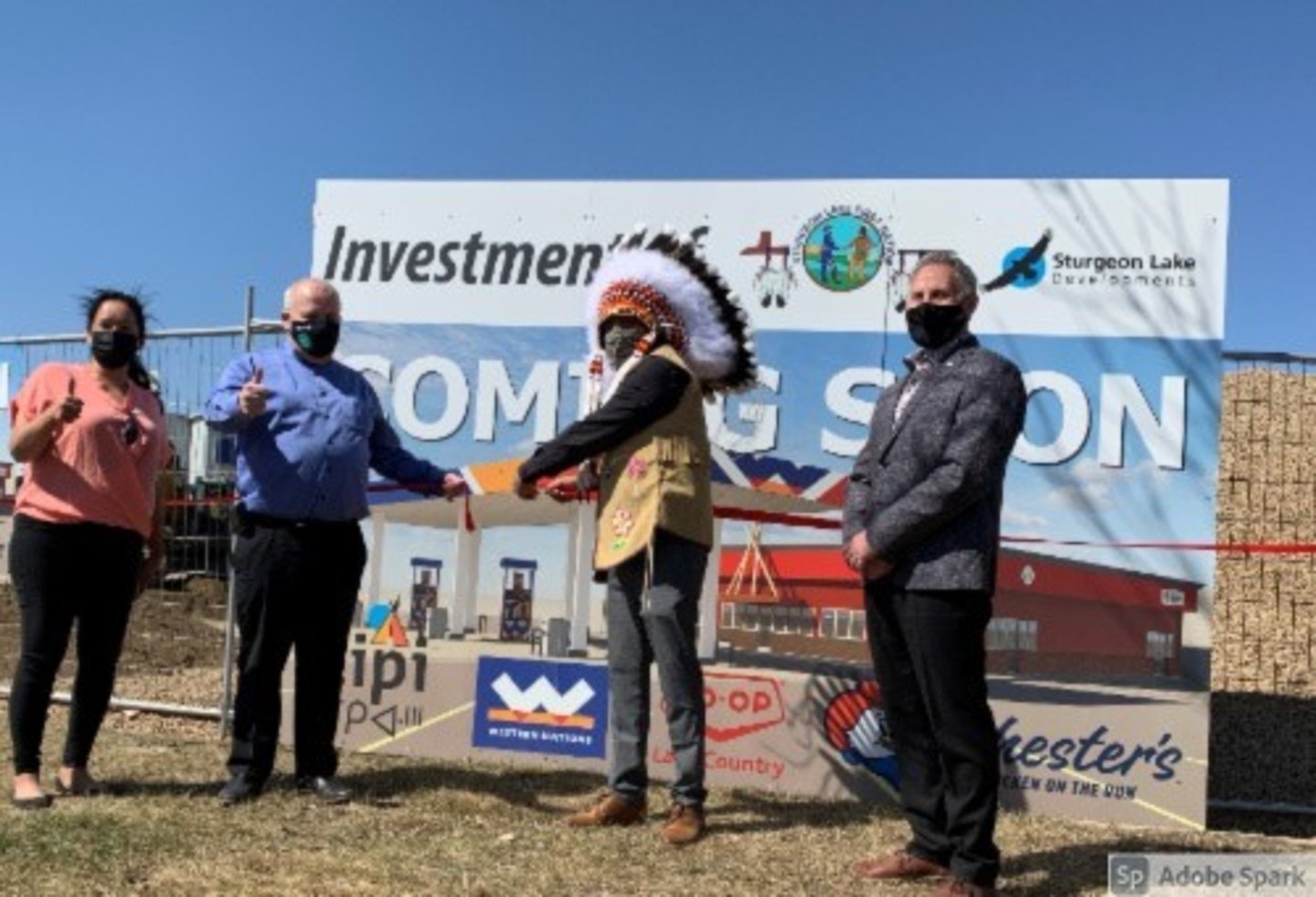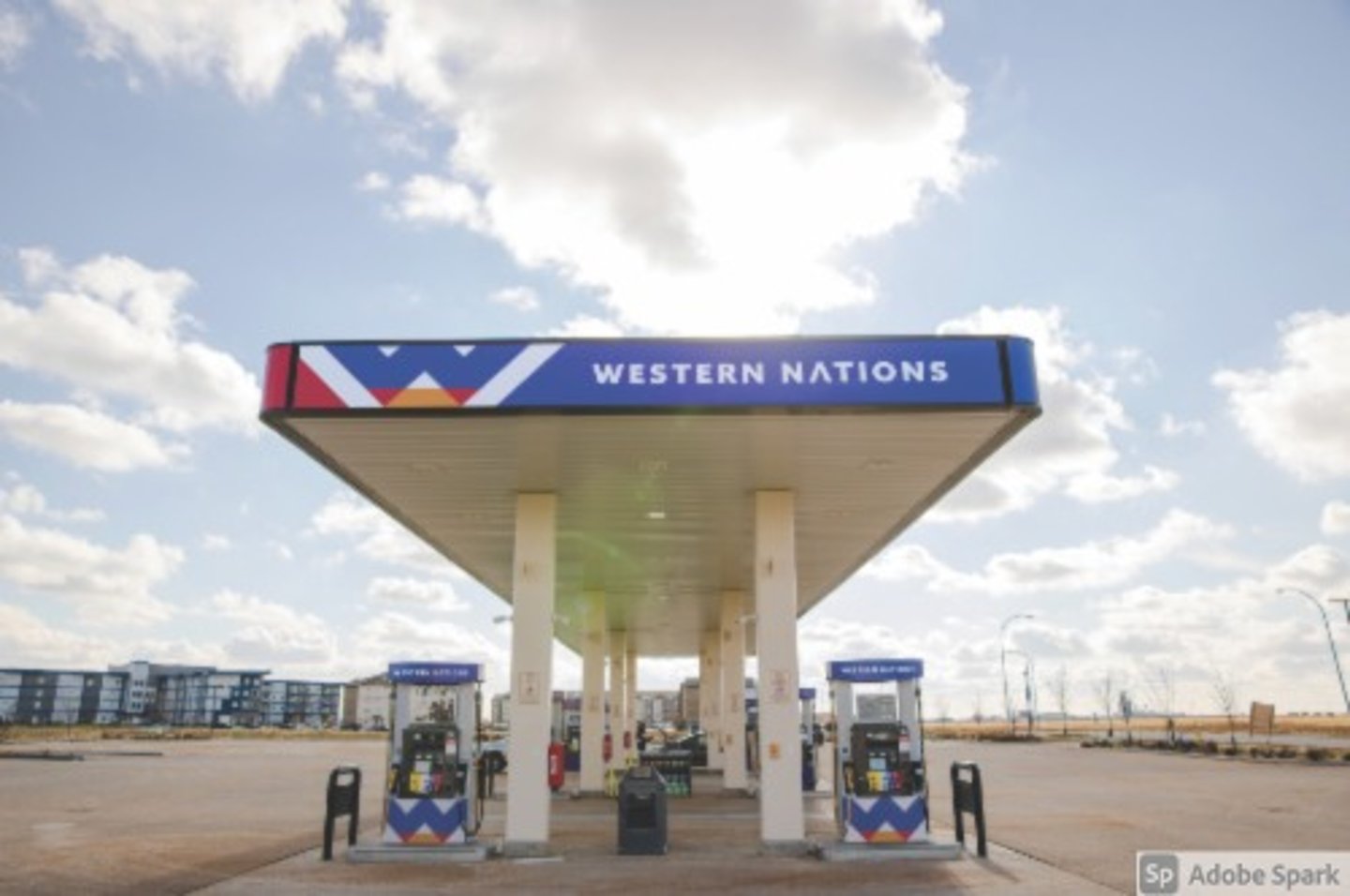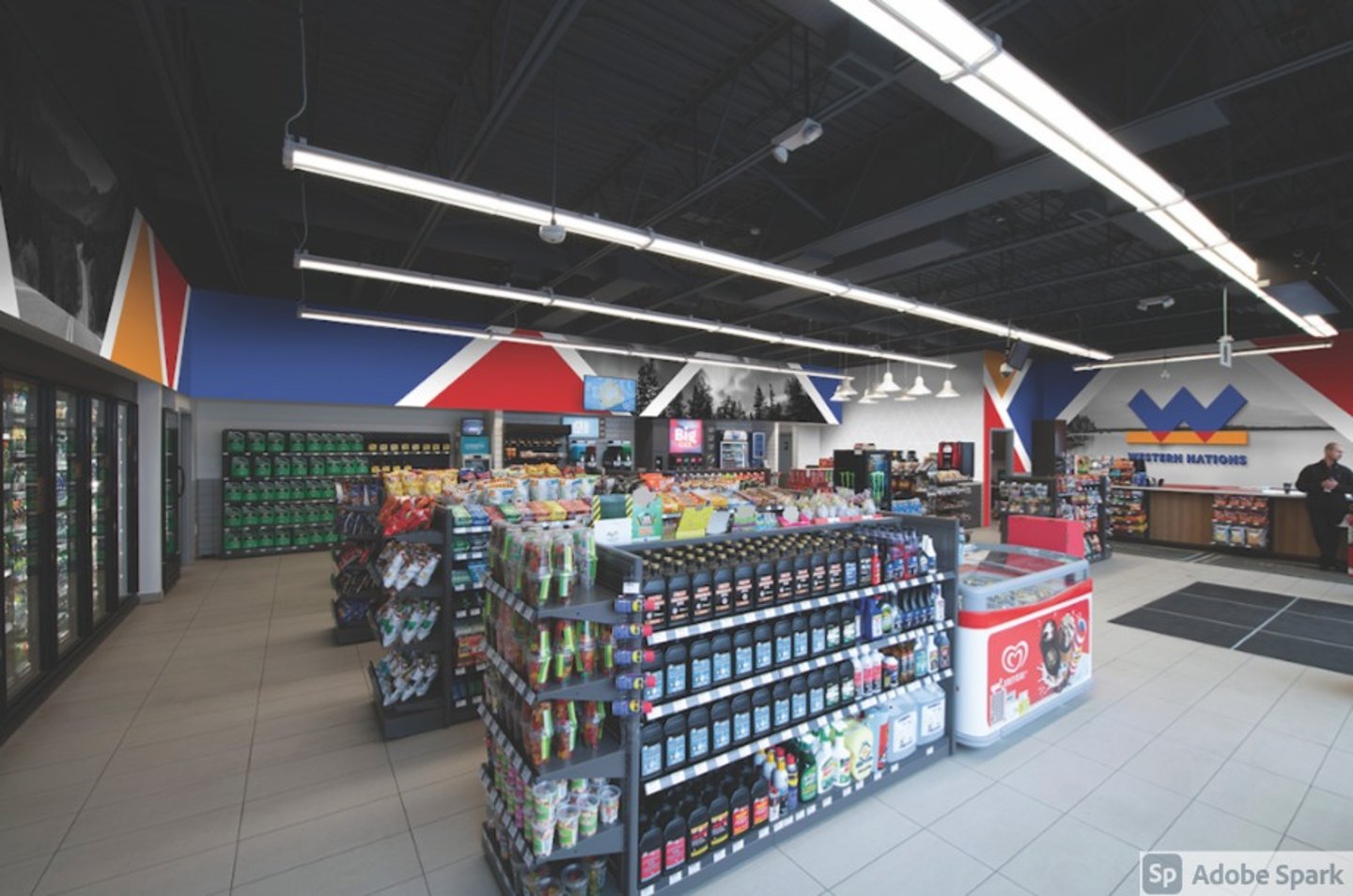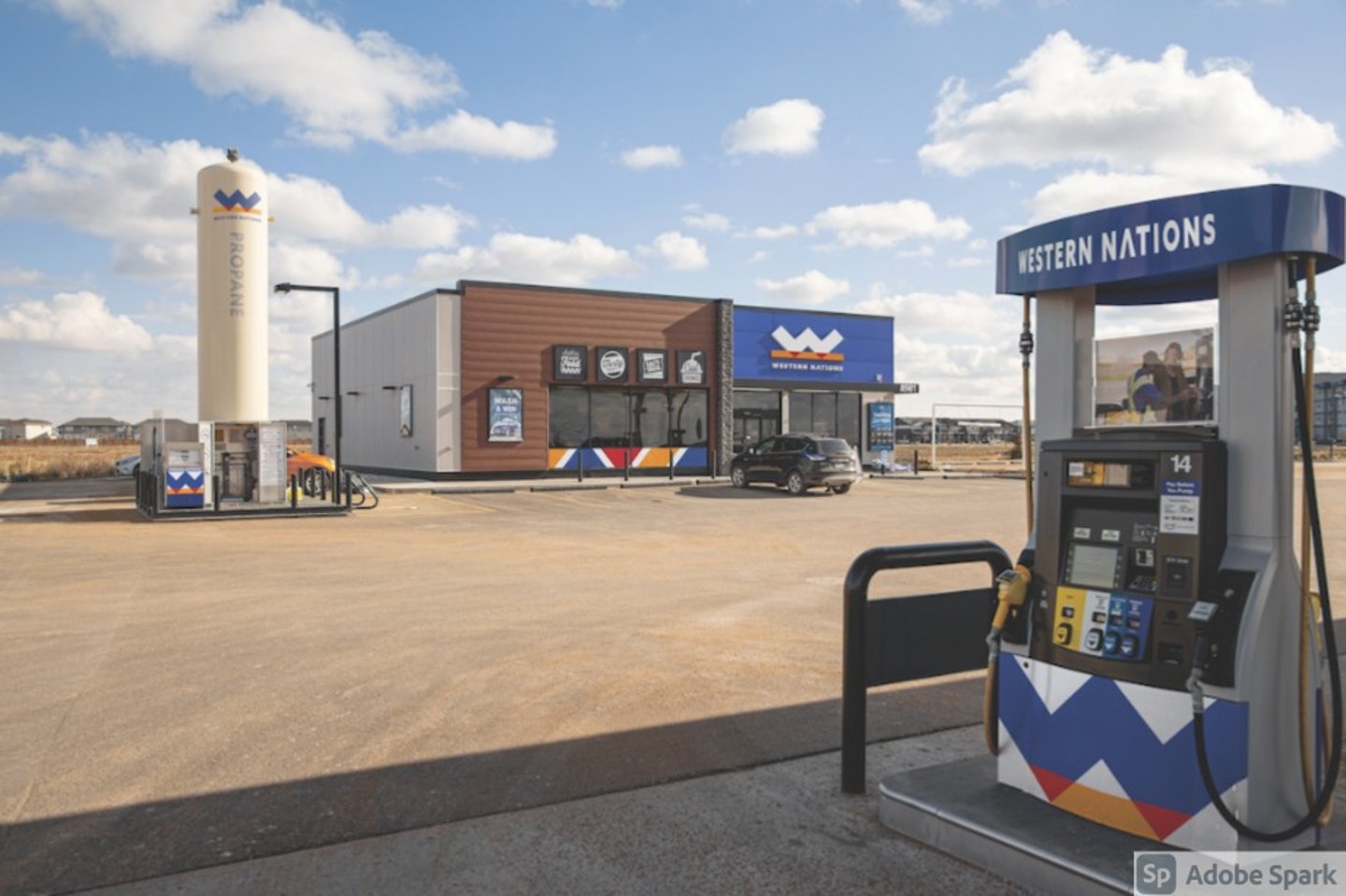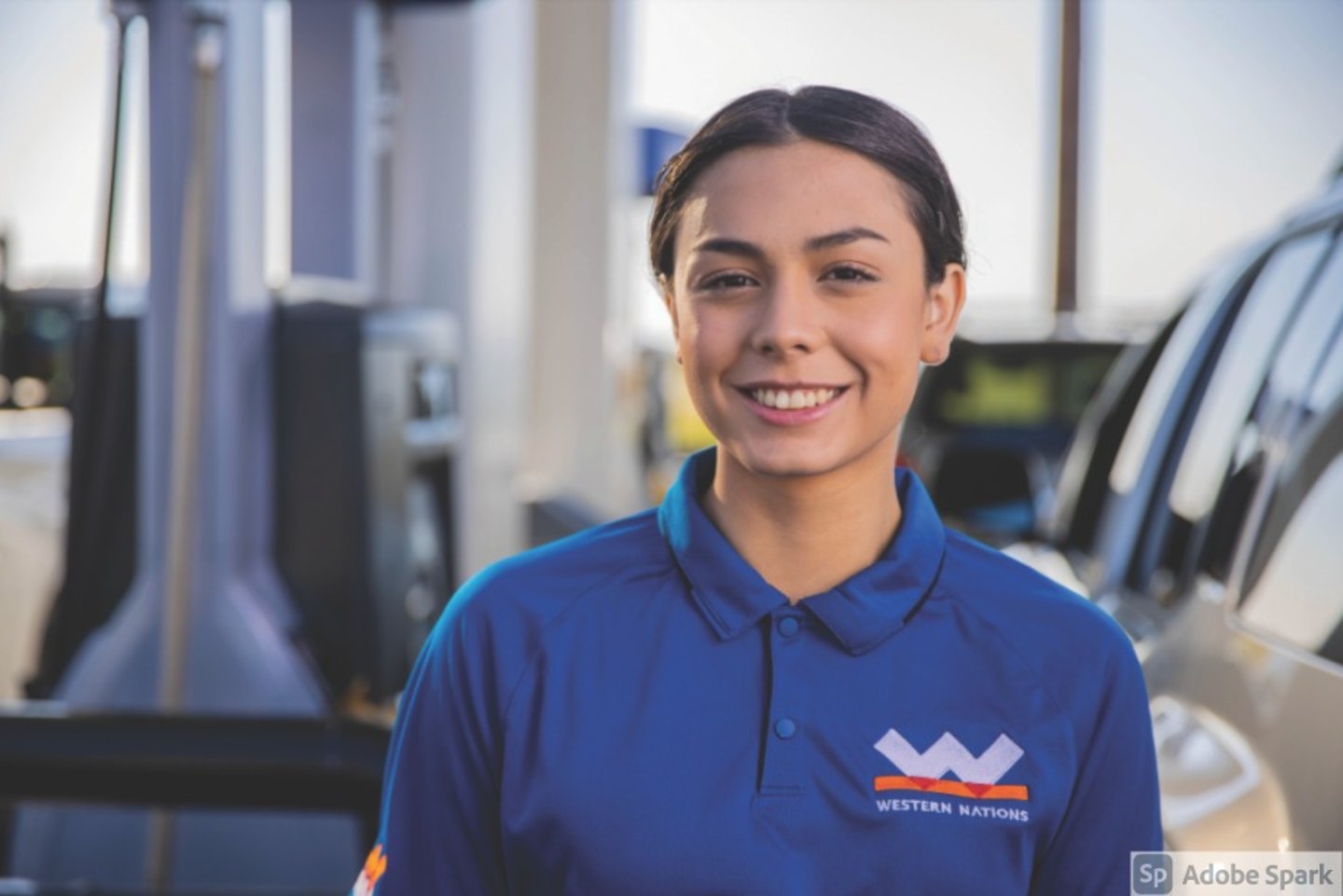Western Nations gas bar brand serves Indigenous entrepreneurs and communities
There’s a new gas banner coming to sites in Western Canada. In January, Saskatoon-based Federated Co-operatives Limited (FCL) announced plans to launch Western Nations, an exclusive program targeted to Indigenous communities in the region.
According to Roger Korte, FCL’s director of petroleum sales and marketing, the brand was developed after two years of consultation and internal development.
“The Western Nations brand is a tailored approach for unique markets that may have been underserved in the past,” he says. “Western Nations reflects a balance between traditional culture and modern business systems.”
FCL is the wholesaling and manufacturing partner for more than 160 local Co-op associations. Altogether, FCL and these local Co-ops manage a network of about 400 gas stations and more than 380 cardlock locations. Local Co-ops also manage fuel supply agreements with independent businesses.
First sites in development
In 2019, Gambler First Nation put shovels in the ground on a $50-million project to develop an urban reserve on a 3.5-hectare parcel in Brandon, Man. The site will feature a Western Nations gas station and a pair of retail units built along 18th Street. Hotel, offices and more retail developments are planned as the project moves forward.
According to Gambler First Nation Chief David LeDoux, they looked to the Western Nations brand because it shared their values and goals and was willing to work alongside the group on its road to economic and community development.
“While we had a lot of interest from all of the national brands to work with us on the development, we knew very early on that we felt most comfortable working with Heritage (Co-op) and FCL based on the relationships and trust we were able to build,” Chief LeDoux said. “The national brands did not offer any management support, or very little, so we approached Heritage about whether they could assist with management of the business until we had the internal capacity to take this on.”
According to Chief LeDoux, the biggest hurdle was access to the financing needed to build this type of project as on-reserve financing has many challenges, especially to First Nations with no own source revenue. “We knew we wanted a development that our members could be proud of but we had financial limitations.”
A grant through the Western Nations Program helped them finance a portion of the project. In addition to financial grants, FCL and local Co-ops can provide assistance to Indigenous communities with site planning and design as well as development. For those new to the gas station business, the program has supports for site maintenance and management. Western Nations operators can also receive help with promotion and marketing, including a uniform program to help create a level of brand consistency between locations.
“Partnering with a First Nation, on an urban reserve site in our trading area, is an opportunity for us to support our community while also increasing our market share,” said Barry Cooper, business-to-business operations manager at Heritage Co-op.
Heritage Co-op, a 30,500-member group with facilities across western Manitoba, is experienced in building and operating gas bars with 3 locations in Brandon – a city of over 49,000 people just over 200 kilometres west of Winnipeg along the TransCanada Highway.
Cooper suggests that the partnership allows Gambler to develop a business that will be a cornerstone to their Brandon Urban Reserve. They’ll work together to create a first-class facility that provides revenue for Gambler’s community and future projects.
“One of the most exciting parts of this partnership is that Heritage will be managing the location for Gambler. This means that we can utilize our experience in running gas bars to help them avoid many of the issues that a first-time owner-operator would face.”
Sharing success through knowledge building
For April Roberts-Poitras, the designing and developing a gas station has been an enlightening process. Roberts-Poitras is CEO of Sturgeon Lake Developments Ltd., which will own and operate fuel and convenience stores under its TIPI Fuel and Convenience Store business arm.
“There were a lot of areas I was not too familiar with…for example, rack prices, suppliers and introducing me to several resources,” she said. “I am very thankful to FCL and Lake Country Co-op. The knowledge and expertise that you have shared are priceless. The information we share in trust demonstrates that this is a true partnership and what one should look like.”
Sturgeon Lake First Nation announced a partnership with Lake Country Co-op to open one of the first locations using the Western Nations brand in Prince Albert, Sask., in April. The location will offer Top Tier certified gasoline, Co-op’s Premium Diesel, propane, lubricants, convenience-store items and a Chester Fried Chicken offering.
Roberts-Poitras noted the business will support its community through revenue sharing, program development, and employment and training opportunities.
“Building mutually beneficial partnership with First Nations means supporting the growth and development of First Nations communities,” said Brian Kindt, VP of Agro at Lake Country Co-op. “Through Western Nations, we support the community through the Community Building Assistance Program, which provides funding for community initiatives, as well as providing opportunities for good jobs and additional services.”
The Community Building Assistance Program provides funds based on fuel sales that communities direct towards local infrastructure, programs and events. The gas station aims to employ more than a dozen people on site.
With 50,000 members, Lake Country Co-op operates in 18 communities across north-central Saskatchewan.
“Co-ops are locally managed with strong supply chains and successful relationships,” Kindt said. “Our fuel is refined right here in Saskatchewan, and we have a proven record of quality right across Western Canada.”
This article originally appeared in the July/August 2021 issue of OCTANE.

